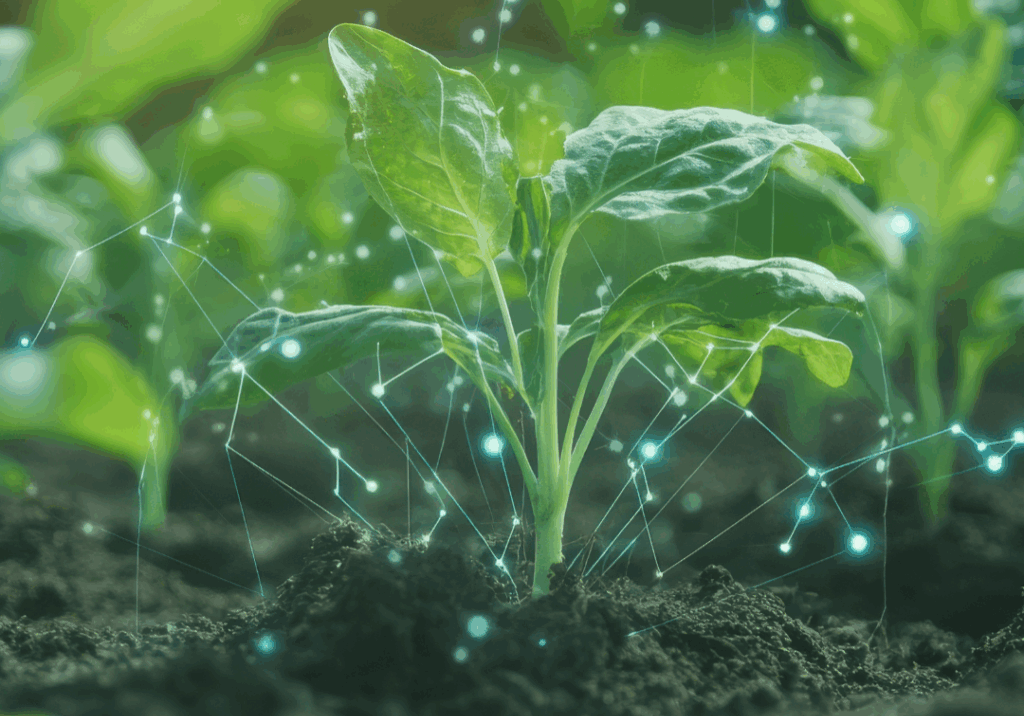Tomatillos, Radical Openness and Love
 This summer we decided to grow tomatillos in our garden; something we had not done before, although I had seen volunteer tomatillos growing by a riverbank years ago and was intrigued by them. In the beginning of their development their thin husks look like tiny, paper lanterns. As they progress, you can feel a small ball forming within the lantern. Eventually the ball completely fills out the space and bursts open its husk, which parts to the sides like rounded curtains. When harvesting ripe tomatillos and other fruits of the garden there is that moment when, through their parted curtains, colors or textures, they say, “Ta-da! I’m ready!” — ready to be “taken, blessed, broken and given,” to use the themes of Henri Nouwen in Life of the Beloved.[1] Ready to become salsa verde for your Mexican dinner! At this stage, in an act of kenosis or self-emptying, the fruit of the plant falls easily into your hand upon touching it, offering no resistance.
This summer we decided to grow tomatillos in our garden; something we had not done before, although I had seen volunteer tomatillos growing by a riverbank years ago and was intrigued by them. In the beginning of their development their thin husks look like tiny, paper lanterns. As they progress, you can feel a small ball forming within the lantern. Eventually the ball completely fills out the space and bursts open its husk, which parts to the sides like rounded curtains. When harvesting ripe tomatillos and other fruits of the garden there is that moment when, through their parted curtains, colors or textures, they say, “Ta-da! I’m ready!” — ready to be “taken, blessed, broken and given,” to use the themes of Henri Nouwen in Life of the Beloved.[1] Ready to become salsa verde for your Mexican dinner! At this stage, in an act of kenosis or self-emptying, the fruit of the plant falls easily into your hand upon touching it, offering no resistance.
Reflecting upon on a pecan grove, environmental biologist Robin Wall Kimmerer of the Potawatomi Nation writes, “How generously they shower us with food, literally giving themselves so that we can live. But in the giving their lives are also ensured. Our taking returns benefit to them in the circle of life making the chain of reciprocity.”[1] Kimmerer explains that, according to the precepts of the Honorable Harvest, we are to “take only what is given, to use it well, to be grateful for the gift, and to reciprocate the gift…” by caring for the grove and planting seeds for the next season.[2] She makes a distinction between gifts and commodities as well as the economies that result from them. Whereas we have no inherent obligations to those who sell us commodities, “a gift creates ongoing relationships.”[3] Kimmerer maintains that, unlike berries in the grocery store, wild strawberries are gifts, meant to be given, not sold. Sharing a gift increases its value; a value “based in reciprocity,” whereby the gift is meant to be regifted.[4] Thus, gifts are not free in the gift economy. Rather, they create a set of obligatory relationships. Kimmerer further explains that “…it is human perception that makes the world a gift. When we view the world this way, strawberries and humans alike are transformed.”[5] She proposes that we come to understand the earth as a gift once more, and thereby make our relationships sacred again.
Returning to Nouwen, we can glean further insight into transformative rather than transactional exchanges. In his view, “our greatest fulfillment lies in giving ourselves to others.”[6] He contends that the real question is not what we can offer each other but rather who we can be for each other.[7] This is true in both life and death: “The deaths of those we love and who loves us open up the possibility of a new, more radical communion, a new intimacy, a new belonging to each other.”[8] Nouwen suggests that we can make our death into a final gift by bearing fruit in the lives of many. In this we can see the spiral nature of the Christian Pascal Mystery. But what becomes of those whose gifts and lives are not received? In the garden the food that is not harvested rots on the plants, the ground, or garbage can, unless it is composted to be regifted to the garden. We might thus consider that our obligatory roles as both giver and receiver are vital to the health of the emergent whole and thereby practice radical openness and love for all.
Although Nouwen’s writings are centered on human relationships, Kimmerer’s teachings, gleaned from plants, may lead to an awareness that all of creation participates in the Christic nature of being. All of creation – from the remnants of supernova explosions that reorganize into new stellar systems, to backyard plants that surrender their bulging tomatillos as a gift to be regifted – participates in the Paschal Mystery of being taken, blessed, broken and given. Even within the context of a transactional culture, we can choose to participate in a transformative gift economy whereby we attract each other as lanterns, lit with a passionate love that allows our wild and sacred selves to fully ripen, open, and fall generously into one another’s hands and lives, becoming food for one another and the world. We may graciously give our lives to each other and to the Earth in reciprocity, knowing that life and death are partners in a harvest of love that leads to the sacred banquet of authentic community; a banquet that ensures that life on our beloved planet will continue to emerge.
Notes:
[1] Robin Wall Kimmerer, Braiding Sweetgrass; Indigenous Wisdom, Scientific Knowledge, and the Teachings of Plants, (Minneapolis, MN: Milkweed Editions, 2013), 20.
[2] Ibid.
[3] Kimmerer, Braiding Sweetgrass, 26.
[4] Kimmerer, Braiding Sweetgrass, 27.
[5] Kimmerer, Braiding Sweetgrass, 30.
[6] Nouwen, Life of the Beloved, 107.
[7] Nouwen, Life of the Beloved, 113.
[8] Nouwen, Life of the Beloved, 117.
 View print-friendly version
View print-friendly version
3 Comments
Related Posts

The Earth Groans, AI Grows: Who Guides the Flame?
In this critical moment of planetary history, where ecosystems collapse, artificial intelligence proliferates, and human meaning trembles on the edge of uncertainty, we are faced with a profound question: What kind…


Judith, your piece touched me deeply! How I wish Ecotheology was a required topic in all school systems! How different the world would look! The reflection by Neuwen concerning our final gifts gave me pause…most of mine will be of the ” nonhuman” variety. The critters at my feeders. The trees I kiss. The “strays” lounging about my home….The seedlings I beg forgiveness to as I thin during early summer. Whole-making, connection, interconnection as with Grandmother Spider. It must be now.
Judith, thank you for your very lovely comment. I love your phrase about “finding the sacred in the reciprocities in which we are deeply embedded.” In ecotheology there is a conceptual shift toward finding the sacred not only in people and things, but in relationships themselves. You articulate this so beautifully by naming reciprocity as a sacred space, thus further qualifying a relationship that is essential to an ecological ethic. Thank you for this. Ilia Delio and Paul Fiddes have rich writings on Trinitarian relationships and our participation in them. Reciprocity is a key aspect of these relationships. I’m grateful for your comment, as it helps me to think more deeply about the quality of relationships involved in these Trinitarian dynamics.
I love your piece and the connections you make with Henri Nouwen and Robin Wall Kimmerer’s work. What rich attentiveness. I find myself at a tiny altar in the world here, shifting the paradigms for us to finding the sacred in the reciprocities in which we are deeply embedded. Thank you.